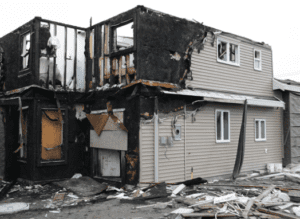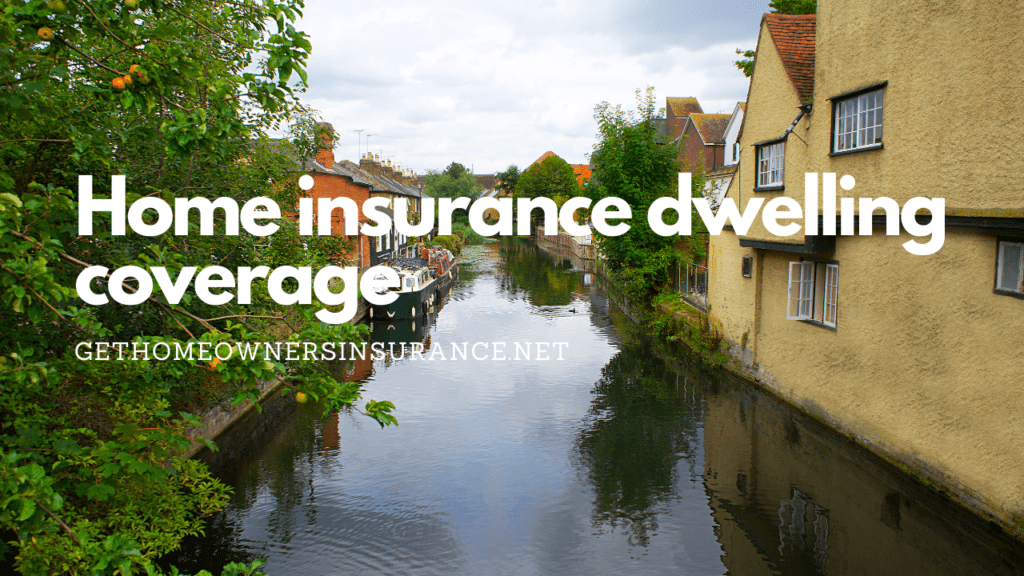Home Insurance Coverage a Dwelling
Home insurance protection protects you and your family in the event that your house or items in it are damaged or destroyed.
It will also reimburse you if you or a family member is found legally liable if another person is in your house or outside your property.
However, not all home insurance policies are the same. It is important to make sure that you know what your policy covers and what is excluded.
Home Insurance Coverage a Dwelling
Most home insurance coverage Dwelling policies cover damage caused by fire, theft, vandalism, lightning, hail, and windstorms.
Damage caused by heavier sources, such as tornadoes, earthquakes, and hurricanes, is not included in the overall distribution plans. This can be problematic if you live in a country where such natural disasters are common.
They provide just the very necessary home insurance plan security at a small cost.
Observe that this type of coverage:
- Normally defends the dwelling plus additional structures on the property; structures like car ports or garden sheds.
- Protects property owners from loss of lease income.
- o Normally will not offer responsibility for injury or harm continually by others in your home. A clear distinction from the frequent house owner’s plans.
Damage Dwelling Definition
A home insurance plan provides basic security much more cheaply than a regular homeowner’s insurance plan. This is fantastic information for people who have more than one house.
It is true that home insurance coverage a Dwelling plan can be expensive. On the other hand, a home insurance plan works fully for individuals who purchase properties for lease.
Financial obligations and who do not need to buy things like others with the insurance plan.
Personal Property Coverage
It is also for individuals who live in two or more houses each year to purchase an insurance plan for both houses using a regular homeowner’s home insurance coverage a Dwelling.
On the other hand, a home insurance plan works entirely for individuals who purchase properties for a lease or financial obligation and do not have to buy other items in the insurance plan as if they were buying themselves..
Do you need a quality life insurance plan for your home?
Let us associate you with our system providers. This will make it easier for you to evaluate and contrast the various guidelines and their assessment, and to choose your ideal vacant home insurance plan.
On the other hand, a home insurance coverage a Dwelling plan works entirely for individuals who purchase properties for a lease or financial obligation and do not have to buy other items in the insurance plan as if they were buying themselves.
In Addition to Dwelling Coverage
Most policies cover damage to structures, such as garages, sheds, and guest houses, that are detached from your house but located on your property.
Again, you need to be sure that you are buying adequate house insurance coverage to cover the most endangered damages.
Home insurance policies also usually pay for damage to your personal property and belongings in your house if the damage was caused by an event in your coverage plan.
Covered items may include clothing, books, furniture, electronics, and appliances. Whether your home insurance coverage a Dwelling policy pays you for the value of the items or replaces them with the latest models may vary.
So you need to talk to your representative to find out the coverage of your personal property.
‘Apartment’ (North Carolina)
According to N.C. Gen. Stat. Section 160A-442, “Apartment” means any building, structure, prefabricated house, or mobile home, or part thereof, that is used and inhabited for human living.
Intended for this use and includes all outbuildings and accessories that are associated with or normally used with them, except that they are not prefabricated houses or RVs used solely for seasonal vacation purposes. “
According to N.C. Gen. Stat. Section 53-244.030, “Apartment” refers to a residential structure that contains one to four units, regardless of whether this home insurance coverage a Dwelling attached to a plot of land or not.
The term includes a single condominium, cooperative unit, prefabricated house, mobile home, or trailer when used as a residential building.
Under Oregon Law, an “apartment” is defined as “a building that is regularly or intermittently occupied by a person who lives in it at night, whether or not that person is actually present”. United States vs. Adams, 2009 US App. LEXIS 25866 (9th Circ. Or. 25.11.2009)
“Ordinary Residence” (international law)
In international agreements, a person can only have one habitual abode, namely the place where the person has his habitual abode and to which he regularly returns after a longer stay in other places.
It is used to determine the law that will be applied in resolving a particular legal dispute. The Hague Conference on Private International Law has deliberately omitted a definition.
So that the concept is flexible and adaptable to practical requirements.
‘Occupied Apartment’ (Various US States)
In California, Penal Code 246 governs the shooting of a firearm at an occupied home. This code indicates that an “apartment” (more commonly referred to as a house) is “occupied” when a person lives in it; it does not matter whether someone is present.
A house, building or structure is not considered to be “inhabited” or “inhabited” if the occupants have moved out or moved out and do not want to return, even if personal property has been left behind.
Therefore, it would no longer be considered a dwelling for legal purposes. Which would nullify a conviction under this law from a defense point of view.
It is beneficial for prospectors to interpret these terms loosely to ensure as many convictions as possible for violating this home insurance coverage a Dwelling.
Dwelling Coverage A B C D
Examples of a loose interpretation exist not only in California. But also in other states such as Colorado, where a similar code (Colorado Code § 18 applies even if shooting at a detached garage, which is traditionally not an apartment or house) is applied.
However, courts in these and other states have ruled that it is suitable as an occupied building for criminal conviction purposes.
Article Source: Home Insurance Coverage a Dwelling and Dwelling Coverage A B C D.

